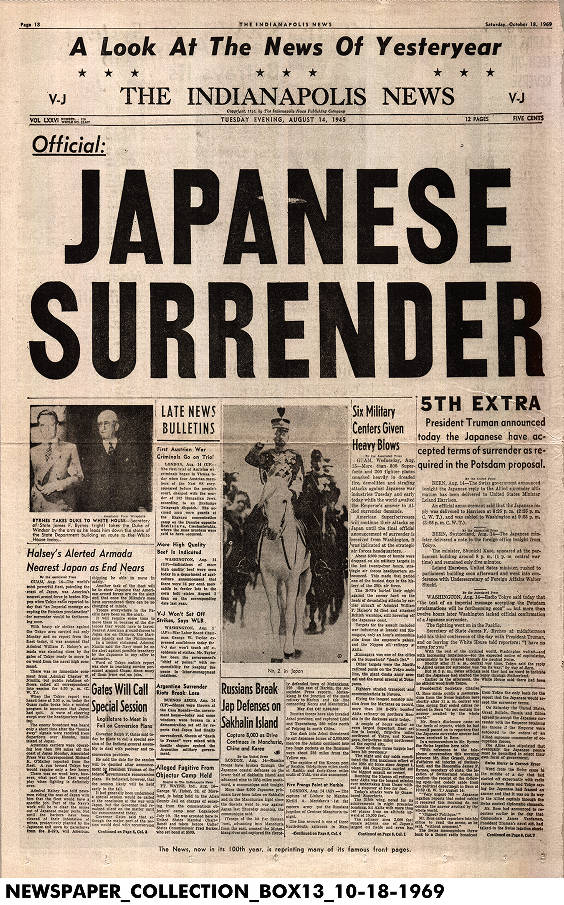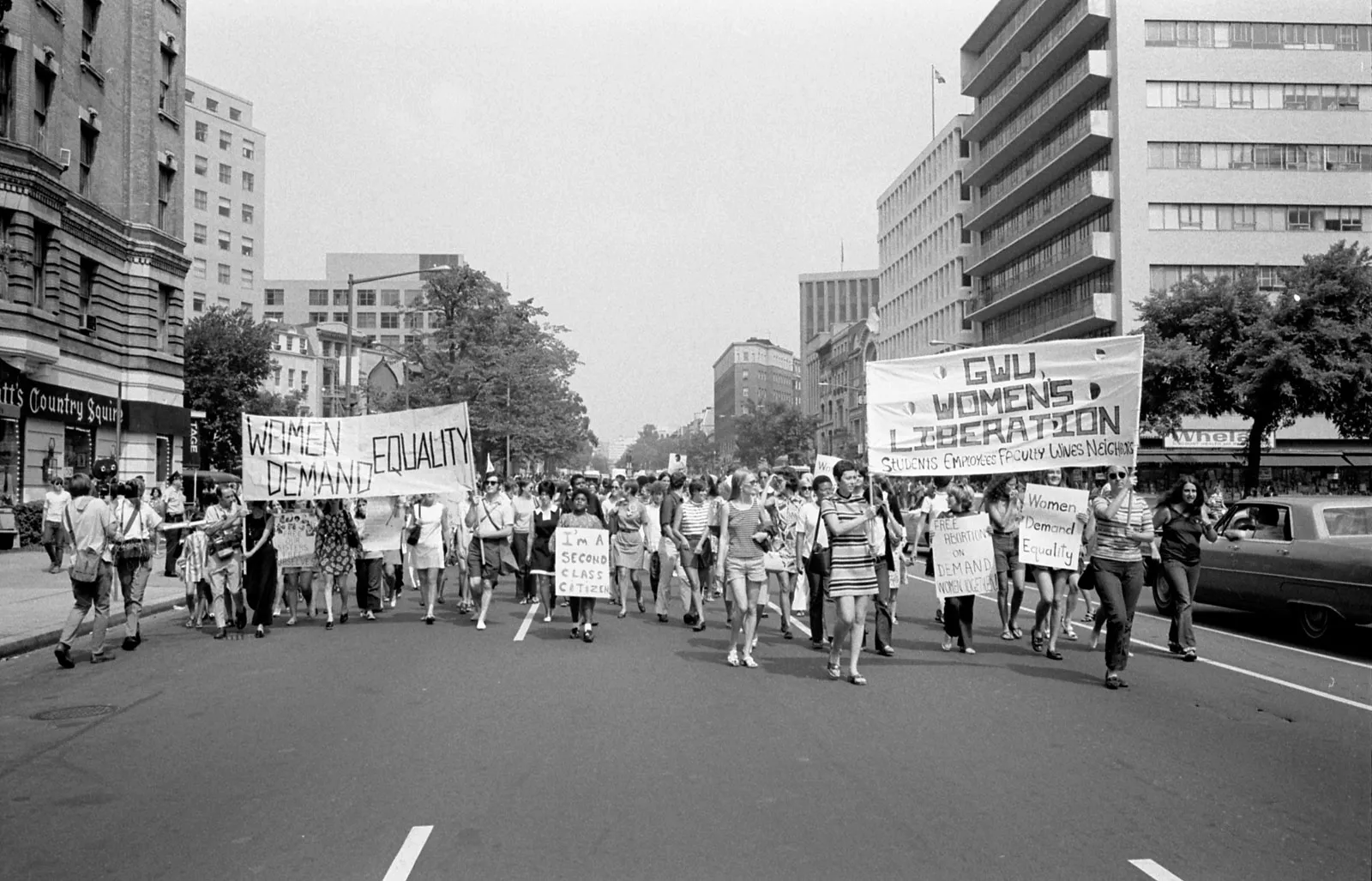The Changes During World War II Were Only Temporary
Following the surrender of the Japanese forces, men came back to reclaim their role in society since the war was now over. This pushed women back to their more traditional role, with many being laid off. Male workers were also laid off, but only at half the rate of their female coworkers. After seeing a drastic increase of the percentage of women in the workforce, it shrunk back down to 27%. The economic rights of women became less accessible. And the responsibilities prior to the war returned, such as becoming a housewife again.

Newspaper annoucning the surrender of Japanese Forces, c.1945, Indiana Historical Society
The Fight for Rights Continue
With their newfound right, many women felt empowered and inspired to keep working during the postwar era, which would fuel the Women's Rights Movements decades later.
Although many women chose to return home, some enjoyed their freedom and wanted to continue to keep working and fought passionately to maintain their economic rights. One such woman was Fannie Hurst who urged women to not “step aside when our men come home and resume economically, industrially, almost where we left off.” She also believed that this expansion of rights shouldn't be temporary, stating “nothing is permanent but change.” (Hurst)
Hurst would also say “Not for one moment has this forum been concerned solely with a mere discussion of more jobs for women; equalization of the citizenship rights; extension of their home interests; wider economic independence and a more active participation in the machinery of government.” (Hurst) Hurst believed that this was the perfect time to advance the rights of women and keep fighting for equal treatment. In a survey conducted on working women in 1946, it was found that three-fourths of these women did not have the desire to give up their jobs after the war, but many felt like they were forced to.
However women were not easily going to give up this right as they continued fighting for their rights and equal treatment. Women had the desire to achieve equal rights such as equal pay and equal opportunity in the workforce.

Women's Rights Protest, c.1970, Brittanica